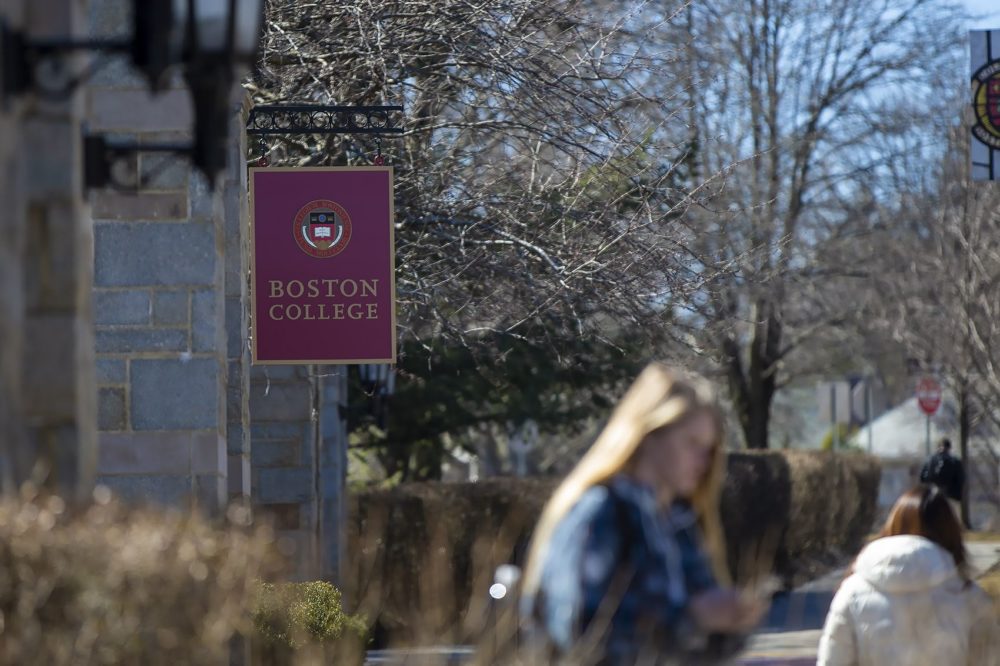Advertisement
Boston U.S. Appeals Court Hears Arguments On Due Process For Students Accused Of Sexual Assault
Resume
A three-judge panel of the U.S. Court of Appeals for the First Circuit in Boston heard oral arguments Tuesday on what rights a private college must give to a student accused of sexual assault.
The case, John Doe v. Boston College, involves a current male BC student accused of sexually assaulting a female BC student in November of 2018.
Doe, the anonymous plaintiff, was suspended for one academic year by BC after officials at the private college conducted an internal investigation into the accuser's Title IX complaint filed earlier this year and allegations against him. The school "ultimately found [Doe] responsible for non-consensual sexual contact," court documents show, and suspended him for violating its policies on sexual assault.
Doe has denied the allegations against him and maintained sex he had with his accuser was consensual. A judge ruled on a preliminary injunction in August that Doe be allowed to return to BC as a student. He is currently enrolled in classes.
Essential to Doe's complaint against the school is that he was not allowed by BC to put questions to his accuser during the school's investigation.
Like many colleges, Boston College has adopted a single investigator model for sexual assault cases. In these cases, one person investigates and makes findings as to whether a sexual assault occurred. It's a model that faces heavy criticism from advocates of due process.
Harvard law professor Jeannie Suk Gersen, who represents Doe, explained after the hearing that the plaintiff contends that both sides in a college sexual assault case should have the right to ask each other questions.
Last year, the First Circuit ruled in a separate, narrower case against Boston College that Massachusetts law requires colleges to treat students with "basic fairness" when they face disciplinary charges.
In this case, Boston College has argued the U.S. Constitution's due process clause does not apply to private colleges.
In court Tuesday, Daryl Lapp — the attorney for Boston College — argued that if a college gives a student notice of the charges against him, and gives him an opportunity to be heard, then it has met the requirement to provide basic fairness.
In another case earlier this year involving the University of Massachusetts, Amherst, the First Circuit ruled that due process requires public universities to offer "some opportunity for real-time cross-examination" — even if a hearing panel asks the questions on behalf of the student.
This is the first time a federal court of appeals is considering whether private colleges have the same responsibility.
Lapp, BC's attorney, argued Tuesday that Doe was given ample opportunity to respond to his accuser's charges because he was able to review the complete binder of evidence against him.
Secretary of Education Betsy DeVos has proposed rules that would require all colleges receiving federal funds to offer the accused the right to cross-examine their accuser.
Correction: An earlier version of this post misspelled the surname of BC's attorney. The post has been updated. We regret the error.
This segment aired on November 5, 2019.
